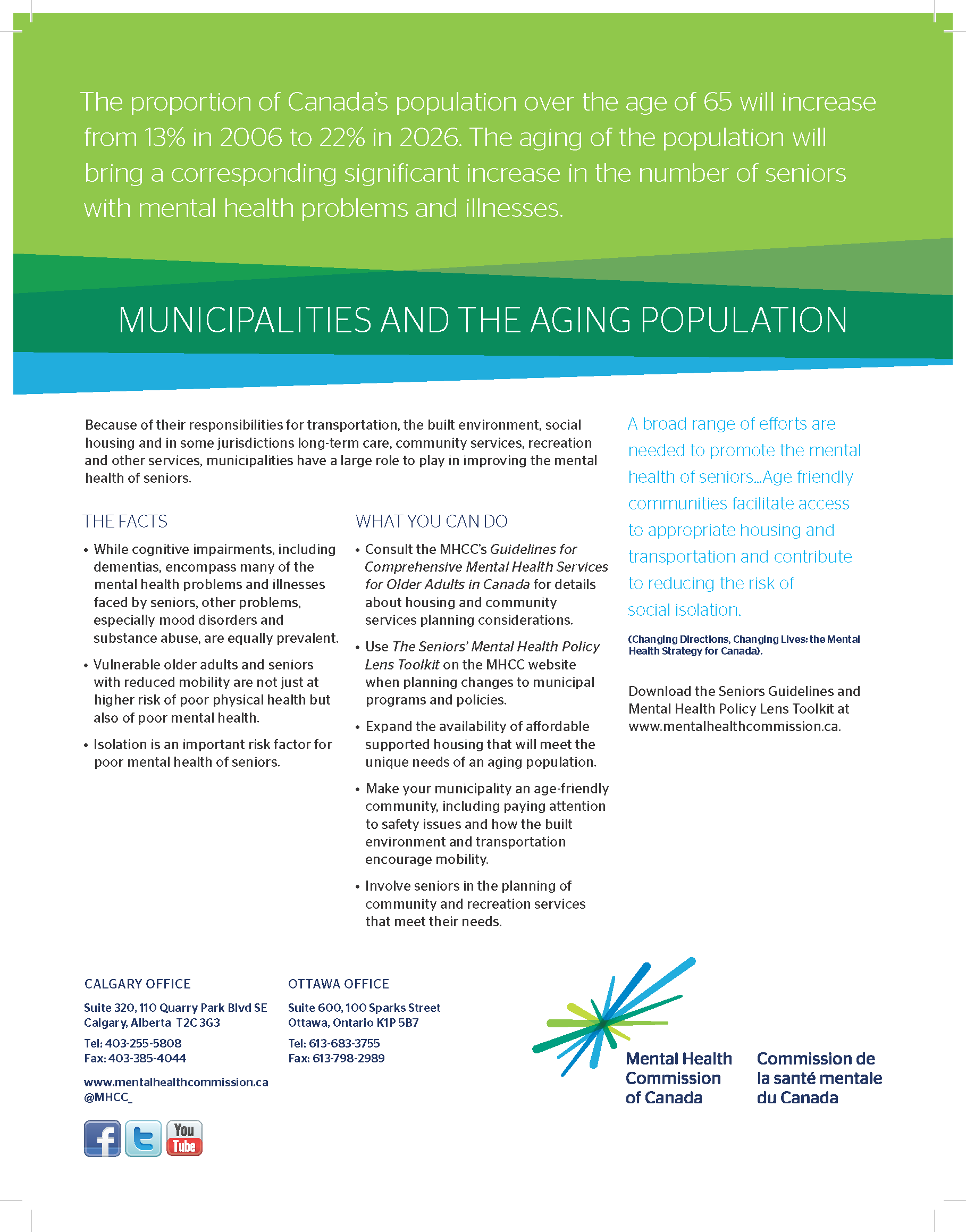If you are in distress, you can call or text 988 at any time. If it is an emergency, call 9-1-1 or go to your local emergency department.
Fact Sheet – Municipalities and the Aging Population
MUNICIPALITIES AND THE AGING POPULATION The proportion of Canada’s population over the age of 65 will increase from 13% in 2006 to 22% in 2026. The aging of the population will bring a corresponding significant increase in the number of seniors with mental health problems and illnesses. Because of their responsibilities for transportation, the built environment, social housing, and in some jurisdictions long-term care, community services, recreation, and other services, municipalities have a large role to play in improving the mental health of seniors. THE FACTS WHAT YOU CAN DO A broad range of efforts is needed to promote the mental health of seniors…Age-friendly communities facilitate access to appropriate housing and transportation and contribute to reducing the risk of social isolation. (Changing Directions, Changing Lives: the Mental Health Strategy for Canada). 
SHARE THIS PAGE
RELATED


